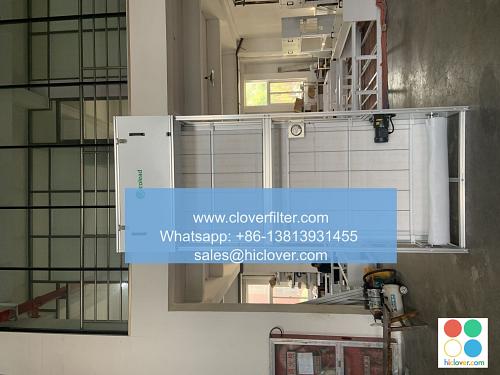The Benefits of Air Filter Software for People with Allergies

Air filter software is a game-changer for individuals suffering from allergies, asthma, and other respiratory issues. This innovative technology helps to monitor, control, and optimize air filtration systems, providing a healthier and more comfortable living or working environment. In this article, we will explore the benefits of air filter software and its various application areas, highlighting the key features and advantages of this cutting-edge technology.
Improved Indoor Air Quality (IAQ) Monitoring
Air filter software enables real-time monitoring of indoor air quality, detecting pollutants, allergens, and other harmful substances. This allows individuals to take proactive measures to minimize their exposure to airborne allergens, such as pollen, dust, and pet dander. By utilizing advanced sensors and data analytics, air filter software provides accurate and reliable readings, enabling users to make informed decisions about their air filtration systems.
Optimized Air Filtration Systems
Air filter software optimizes air filtration systems, ensuring that they operate at peak performance and efficiency. This leads to improved air quality, reduced energy consumption, and extended filter lifespan. By analyzing data from various sensors and sources, air filter software can identify areas for improvement, providing personalized recommendations for filter maintenance, replacement, and upgrading.
Personalized Allergy Management
Air filter software offers personalized allergy management solutions, tailoring air filtration systems to individual needs and preferences. By inputting personal allergy profiles, users can receive customized recommendations for air filter settings, alerting them to potential allergy triggers and providing actionable advice for minimizing exposure. This empowered approach enables individuals to take control of their allergies, reducing symptoms and improving overall well-being.
Smart Home and Building Automation Integration
Air filter software seamlessly integrates with smart home and building automation systems, enabling users to control and monitor their air filtration systems remotely. This convenient and user-friendly approach allows individuals to adjust air filter settings, receive notifications, and access detailed reports on their air quality, all from a single, intuitive interface.
Application Areas: Residential, Commercial, and Industrial
Air filter software has a wide range of application areas, including:
* Residential: homes, apartments, and condos
* Commercial: offices, schools, and healthcare facilities
* Industrial: manufacturing facilities, warehouses, and data centers
In each of these areas, air filter software can help to improve indoor air quality, reduce allergy symptoms, and promote a healthier environment.
Key Features and Advantages
Some of the key features and advantages of air filter software include:
* Real-time air quality monitoring and alerts
* Personalized allergy management and recommendations
* Optimized air filtration system performance and efficiency
* Remote control and monitoring capabilities
* Integration with smart home and building automation systems
* Detailed reporting and analytics
Conclusion
Air filter software is a powerful tool for individuals with allergies, asthma, and other respiratory issues. By providing real-time monitoring, personalized recommendations, and optimized air filtration system performance, this technology can help to improve indoor air quality, reduce symptoms, and promote a healthier environment. Whether in residential, commercial, or industrial settings, air filter software is an essential solution for anyone looking to take control of their allergies and breathe easier. It seems like you forgot to include the actual prompt. Please go ahead and provide the question or topic you’d like to discuss, and I’ll do my best to assist you.

